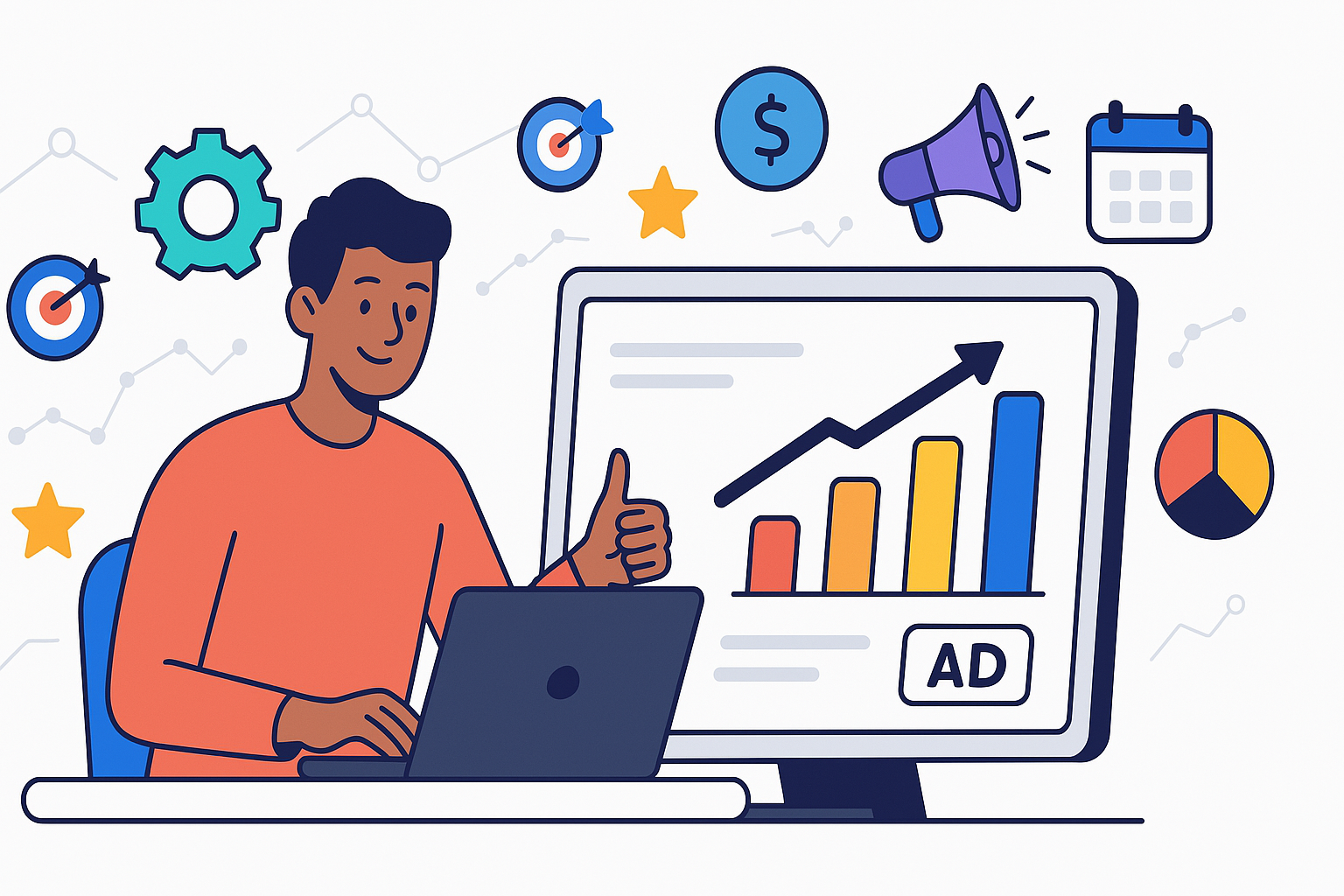Is Google Analytics Worth It? A Data-Driven Evaluation for 2024
by Francisco Kraefft on 18 Oct, 2024
Navigating the digital landscape requires a clear understanding of your audience and website performance. Google Analytics has long been the go-to solution for millions seeking insights into user behavior. However, with the mandatory shift to Google Analytics 4 (GA4) and growing discussions around data privacy and alternative platforms, a critical question arises: Is Google Analytics still worth it? This evaluation dives deep into the capabilities, benefits, and drawbacks of the platform. We'll dissect its features, weigh the advantages against the challenges, consider the cost of not leveraging analytics, and compare it to other players in the market. Our aim is to provide you with the clarity needed to determine if GA4 aligns with your business goals and resource capabilities, empowering you to make a truly data-driven decision for your digital strategy.
Understanding Google Analytics (GA4): What It Is and What It Does
Before assessing its worth, let's establish a clear understanding of Google Analytics 4 (GA4). It's not merely an update; it represents a fundamental shift from the previous Universal Analytics (UA). GA4 is Google's latest generation web and app analytics platform, designed to measure traffic and engagement across your digital properties.
Core Philosophy: Event-Based Model
Unlike UA, which was primarily session-based, GA4 adopts an event-based data model. This means virtually every user interaction – a page view, a button click, a video play, a form submission – is captured as a distinct event. This approach offers several advantages:
- Cross-Platform Tracking: It provides a more unified view of the user journey as users move between your website and mobile apps.
- Flexibility: You gain greater control over defining what interactions matter most to your business, rather than relying solely on predefined metrics like pageviews or bounce rate (which has been replaced by more nuanced engagement metrics).
- Future-Proofing: This model is inherently more adaptable to evolving user behaviors and new digital platforms where the concept of a 'session' might be less relevant.
Key Features and Capabilities:
GA4 offers a suite of tools designed to provide deep insights:
- Realtime Reporting: Monitor activity as it happens, useful for tracking immediate campaign impact or identifying live issues.
- User Acquisition Reports: Understand where your traffic originates (e.g., organic search, paid ads, social media, referrals) and the effectiveness of different channels.
- Engagement Reports: Analyze how users interact with your content – which pages they visit, events they trigger, and how long they stay engaged.
- Monetization Reports: For e-commerce sites and apps, track purchases, revenue, and ad performance.
- Demographics & Tech Reports: Gain insights into user characteristics (age, gender, location, interests – where available and consented) and the technology they use (devices, browsers).
- Explorations Tool: A powerful, flexible interface for building custom reports and visualizations (funnel analysis, path exploration, segment overlap) beyond the standard reports.
- Predictive Metrics: Leverage Google's machine learning to forecast potential churn, purchase probability, and predicted revenue (requires sufficient data volume).
- BigQuery Integration: A significant feature (previously enterprise-only in UA) allowing free export of raw, unsampled event data to Google's data warehouse for complex querying and analysis. Learn more about what Google BigQuery is.
Essentially, GA4 aims to provide a comprehensive understanding of who your users are, how they find you, what they do on your site/app, and the outcomes of those interactions. It moves beyond simple traffic counting to focus on the entire customer lifecycle.
The Undeniable Benefits: Why Google Analytics Remains a Powerhouse
Despite the learning curve associated with GA4 and ongoing debates, Google Analytics retains significant advantages that make it a compelling choice for many businesses. Understanding these benefits is crucial when asking, is Google Analytics worth it?
-
Depth and Breadth of Data: GA4, particularly with its event-based model, allows for incredibly granular tracking. You can measure almost any interaction imaginable, providing deep insights into user behavior that go far beyond simple page views. The ability to customize events specific to your business goals (e.g., tracking PDF downloads, specific button clicks, video engagement milestones) offers unparalleled depth.
-
Cost-Effectiveness (Free Tier): Let's address the elephant in the room: the standard version of Google Analytics 4 is free. For small-to-medium businesses, startups, or even larger organizations starting with analytics, this removes a significant cost barrier. While paid enterprise solutions exist (like GA360), the free version offers immense power and capability, democratizing access to sophisticated web analytics.
-
Seamless Integration with Google Ecosystem: If you utilize other Google products, GA4 integrates seamlessly. This is a major advantage:
- Google Ads: Link GA4 to Google Ads to import conversions, create remarketing audiences based on website behavior, and gain a clearer picture of ad performance and ROI.
- Google Search Console: Connect Search Console to understand how your organic search performance relates to on-site behavior.
- BigQuery: As mentioned, the free integration allows for advanced analysis on raw data, bypassing potential sampling issues in the GA4 interface for high-traffic sites.
- Looker Studio (formerly Google Data Studio): Easily visualize your GA4 data by connecting it to Looker Studio to create custom dashboards and reports.
-
Advanced Analysis Capabilities: The 'Explorations' section in GA4 is a significant step up. Tools like Funnel Exploration, Path Exploration, and Segment Overlap allow you to perform analyses that were previously difficult or required GA360 in Universal Analytics. This enables deeper dives into user journeys and conversion paths.
-
Machine Learning and Predictive Insights: GA4 incorporates Google's machine learning capabilities to offer predictive metrics like purchase probability, churn probability, and predicted revenue. While these require sufficient data and time to become accurate, they offer a forward-looking perspective that can inform proactive marketing and retention strategies.
-
Industry Standard and Community Support: Google Analytics is still widely considered the industry standard. This means a vast amount of documentation, tutorials, forums, and experienced professionals are available. Finding help, training resources, or skilled analysts familiar with GA4 is generally easier than for less common platforms.
These benefits collectively underscore why GA4 remains a dominant force. For businesses seeking comprehensive, integrated, and largely free analytics, its value proposition is hard to ignore.
Facing the Challenges: Limitations and Criticisms of Google Analytics
While powerful, Google Analytics is not without its drawbacks and criticisms. Acknowledging these limitations is essential for a balanced perspective on whether GA4 is the right fit for your needs.
-
Complexity and Learning Curve: The shift from Universal Analytics to GA4 introduced a significantly different interface and data model. Many users find GA4 less intuitive, with standard reports sometimes feeling less comprehensive out-of-the-box. Mastering the 'Explorations' tool and understanding the event-based structure requires a dedicated learning effort, which can be a hurdle for teams with limited time or analytical expertise.
-
Data Privacy Concerns: This is perhaps the most significant challenge. Google Analytics relies on cookies and user identifiers, placing it squarely in the crosshairs of evolving data privacy regulations like GDPR (Europe) and CCPA (California). Concerns include:
- Data Ownership: Google uses aggregated, anonymized data for its own purposes (like improving ad targeting). While your specific data isn't shared directly, Google still benefits from it.
- Cross-Border Data Transfers: Transferring EU citizen data to US-based servers (where Google operates) has faced legal challenges (e.g., Schrems II ruling), leading some European organizations to seek EU-hosted alternatives.
- Consent Management: Properly implementing cookie consent banners and respecting user choices is crucial but adds complexity to setup and can lead to incomplete data if consent is withheld.
-
Potential Data Sampling: While BigQuery export provides raw data, the standard GA4 interface may still apply data sampling to reports, especially for complex queries or long date ranges on high-traffic properties using the free version. Sampling provides estimates rather than exact numbers, which can be problematic for precise analysis. Understanding when sampling occurs and its potential impact is necessary.
-
Shift in Metrics and Reporting: Familiar metrics from Universal Analytics, like Bounce Rate, have been replaced or redefined (e.g., Engagement Rate). While the new metrics arguably offer more nuance, this change requires users to adapt their reporting and understanding of website performance, which can be disruptive initially.
-
Reliance on Google's Ecosystem: While integration is a benefit (as discussed previously), it can also be seen as a limitation. Businesses heavily invested in non-Google platforms might find integrations less seamless. Furthermore, it ties your core website data intrinsically to Google's infrastructure and policies.
-
Data Thresholding: To protect individual user privacy when Google Signals (for cross-device tracking and demographics) is enabled, GA4 may apply data thresholding. This means data might be withheld from reports if the user count falls below a certain minimum, potentially hiding insights from smaller segments.
These challenges don't necessarily disqualify GA4, but they demand careful consideration. Weighing these limitations against the benefits, alongside your specific needs regarding privacy, resources, and technical capability, is key to determining if Google Analytics is worth it for you.
The Cost of Not Using Analytics: What You Stand to Lose
Evaluating whether Google Analytics is worth it often focuses on the tool itself. However, it's equally important—perhaps more so—to consider the significant costs associated with not using a robust analytics platform, whether it's GA4 or an alternative.
Operating without data is like navigating blindfolded. Here’s what you risk losing:
-
Missed Optimization Opportunities: Without analytics, you lack visibility into user behavior. Which pages are performing well? Where are users dropping off in the conversion funnel? Which content resonates most? Without answers, you cannot effectively optimize your website or app for better engagement, user experience, and conversions. You're essentially guessing what works.
-
Inefficient Marketing Spend: How do you know which marketing channels are driving valuable traffic and conversions? Are your Google Ads campaigns profitable? Is your social media effort leading to actual business results? Analytics platforms connect marketing efforts to outcomes. Without this connection, you risk wasting budget on ineffective channels and failing to scale successful ones. Measuring Marketing ROI becomes nearly impossible.
-
Lack of Audience Understanding: Who are your visitors? Where do they come from? What technology do they use? What content are they interested in? Analytics provides demographic, geographic, technological, and behavioral insights. Without this data, your content strategy, product development, and overall marketing messages may fail to connect with your target audience.
-
Inability to Measure Growth and Progress: How can you tell if your business is growing online if you aren't tracking key metrics over time? Setting goals (like increasing conversions, reducing churn, or growing traffic from specific channels) is meaningless if you can't measure progress towards them. Analytics provides the benchmarks and tracking needed to demonstrate growth and justify investments.
-
Poor User Experience: Analytics can reveal friction points in the user journey. High exit rates on specific pages, low engagement with key features, or difficulties navigating the site can all be identified through data. Ignoring these signals leads to a subpar user experience, potentially driving visitors away to competitors.
-
Competitive Disadvantage: Your competitors are likely using analytics to refine their strategies, optimize their spending, and better understand your potential customers. By neglecting data, you cede a significant strategic advantage. They are making informed decisions while you operate on assumptions.
The 'cost' isn't just about potential financial loss; it's about the missed potential for growth, efficiency, and building a stronger connection with your audience. Therefore, the question isn't just "Is Google Analytics worth it?" but rather, "Can we afford not to leverage data analytics?" For nearly every business with an online presence, the answer to the latter is a resounding no. The need for data insights is undeniable; the remaining question is which tool best provides them.
GA4 vs. Alternatives: Making the Right Choice for Your Business
While Google Analytics 4 is a powerful contender, it's not the only option. The growing focus on data privacy and the complexities of GA4 have fueled interest in alternatives. Choosing the right analytics platform depends on your specific priorities, resources, and technical needs.
Here's a brief comparison highlighting key considerations:
Google Analytics 4 (GA4):
- Pros: Free tier, deep data granularity, strong integration with Google Ads/ecosystem, powerful 'Explorations' tool, predictive metrics, large support community.
- Cons: Steeper learning curve, data privacy concerns (GDPR/CCPA implications, data usage by Google), potential data sampling/thresholding, interface complexity.
- Best For: Businesses of all sizes (especially those utilizing Google Ads), teams needing deep customization and analysis, organizations comfortable with Google's ecosystem and data policies.
Privacy-Focused Alternatives (e.g., Matomo, Plausible Analytics, Fathom Analytics):
- Matomo (Open Source/Cloud):
- Pros: Can be self-hosted (full data ownership), no data sampling, privacy-centric by design, customizable.
- Cons: Self-hosting requires technical resources, cloud version has costs, potentially less sophisticated UI/features than GA4.
- Best For: Privacy-conscious organizations, those needing full data control, businesses operating heavily in the EU.
- Plausible Analytics / Fathom Analytics:
- Pros: Extremely simple interface, lightweight script (fast loading), privacy-first (cookieless options), GDPR compliant by design, often EU-hosted options.
- Cons: Less feature-rich than GA4 (simpler metrics), paid subscription model, limited customization.
- Best For: Businesses prioritizing simplicity and privacy over deep data granularity, bloggers, smaller sites, those wanting an easy-to-understand dashboard.
Enterprise-Level Alternatives (e.g., Adobe Analytics):
- Pros: Highly powerful and customizable, robust multi-channel data integration, strong support, often part of a larger marketing suite.
- Cons: Significant cost (enterprise pricing), high complexity requiring skilled analysts, steeper implementation effort.
- Best For: Large enterprises with complex tracking needs, dedicated analytics teams, and significant budgets.
Factors to Consider When Choosing:
- Data Privacy Requirements: How stringent are your privacy needs? Do you need full data ownership or EU hosting?
- Budget: Are you looking for a free solution, or can you allocate funds for a paid platform?
- Technical Resources: Do you have the expertise to manage a self-hosted solution or navigate a complex interface like GA4 or Adobe Analytics?
- Required Data Depth: Do you need simple website statistics or deep, granular analysis of user behavior and custom events?
- Integration Needs: How important is integration with specific platforms (especially Google Ads)?
- Team Expertise: What is the analytical skill level of the team who will be using the platform?
Ultimately, is Google Analytics worth it? Yes, for many, its power and free access remain unmatched. However, if data privacy is paramount, or if simplicity is preferred over feature depth, alternatives deserve serious consideration. The best platform is the one that aligns with your business goals, respects user privacy according to your standards, and provides actionable insights your team can effectively utilize.
Conclusion
So, is Google Analytics worth it in 2024? For a vast number of businesses, the answer remains a qualified yes. Its comprehensive features, deep integration capabilities (especially with Google Ads), and the undeniable value of its free tier make GA4 a formidable tool for understanding user behavior and measuring digital performance. However, the platform's complexity and valid data privacy concerns cannot be ignored. The decision hinges on your specific needs, resources, and priorities. If deep analysis and Google ecosystem integration are key, GA4 is compelling. If privacy and simplicity top your list, exploring alternatives is essential. Regardless of the tool chosen, leveraging some form of web analytics is non-negotiable for informed decision-making and sustainable growth in the digital age.
Ready to harness the power of data analytics but unsure where to start or how to maximize your ROI? Let iVirtual's data-driven experts guide you. Contact us today for a consultation and discover how performance marketing can scale your business.


